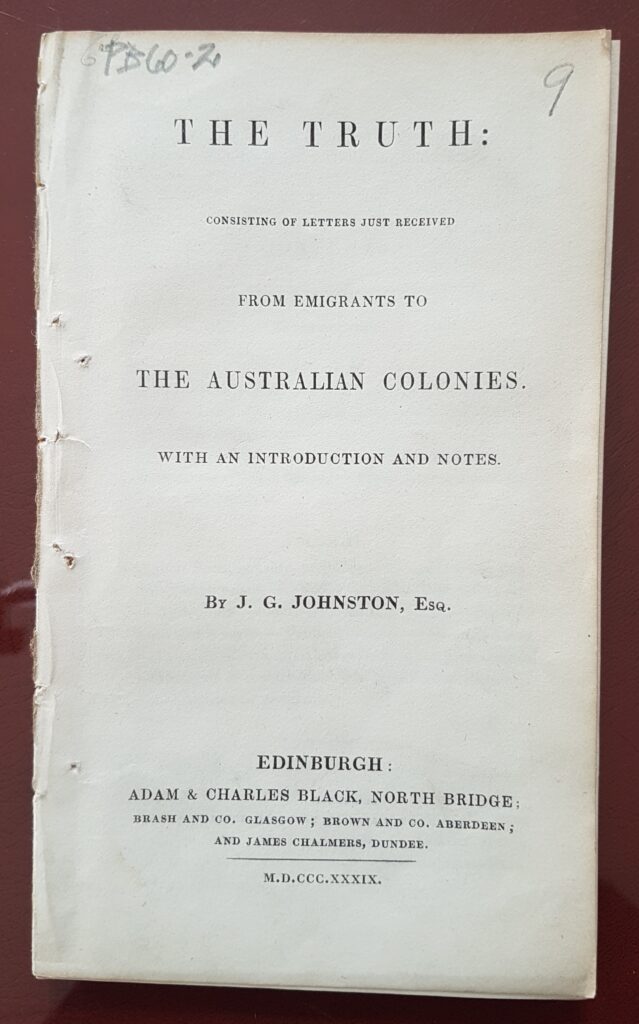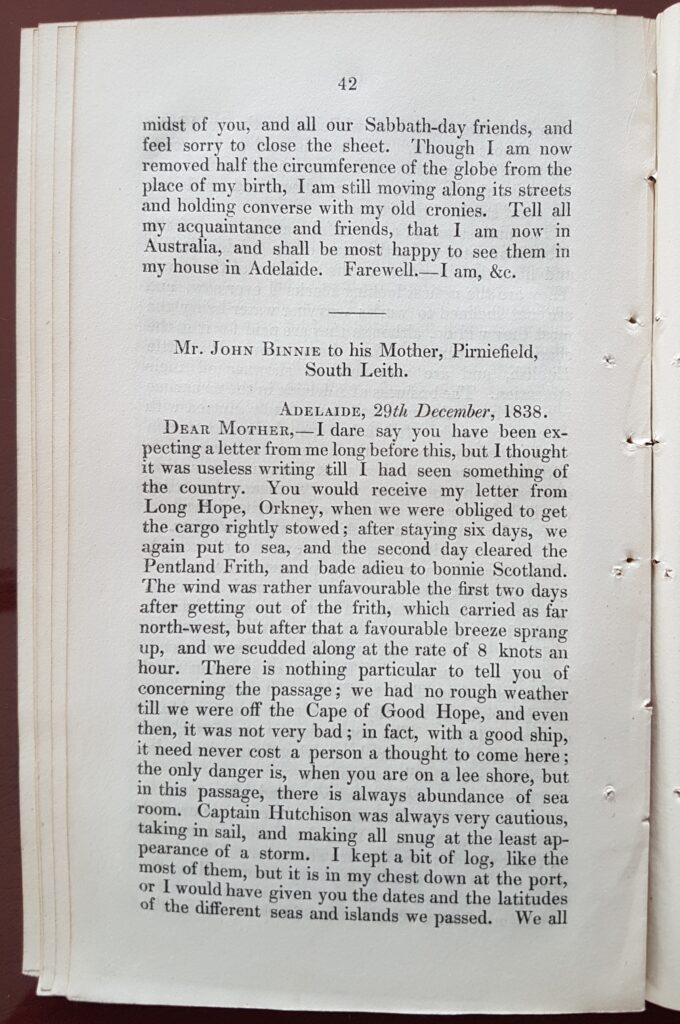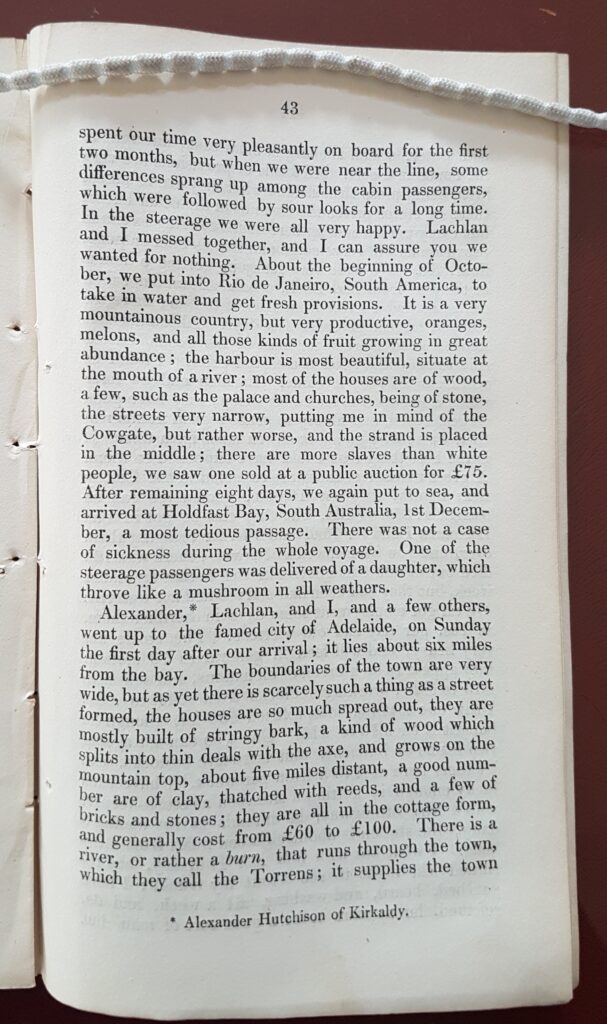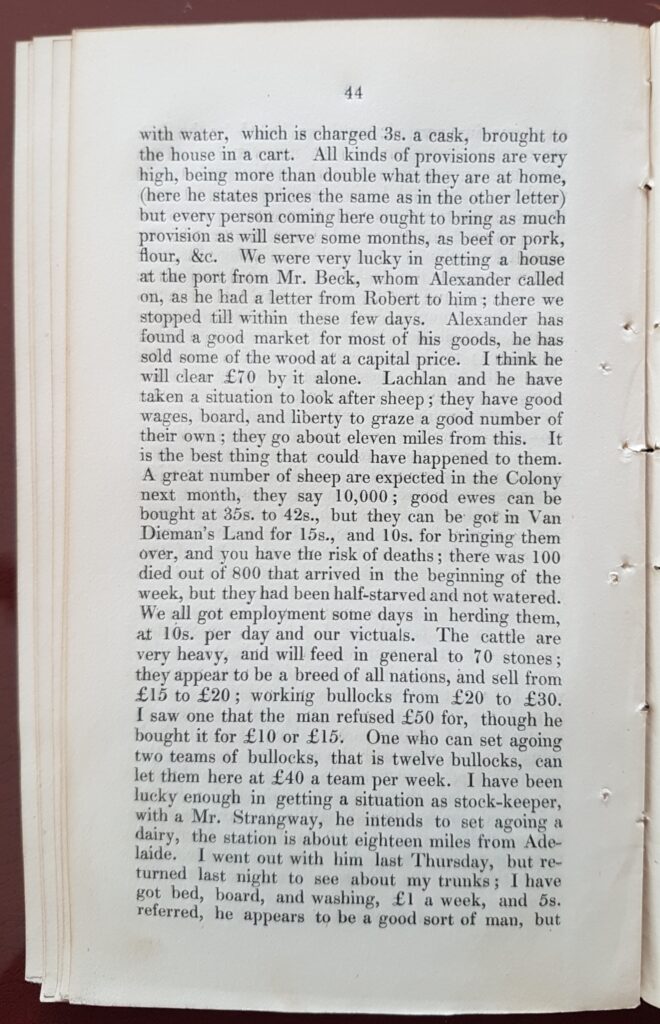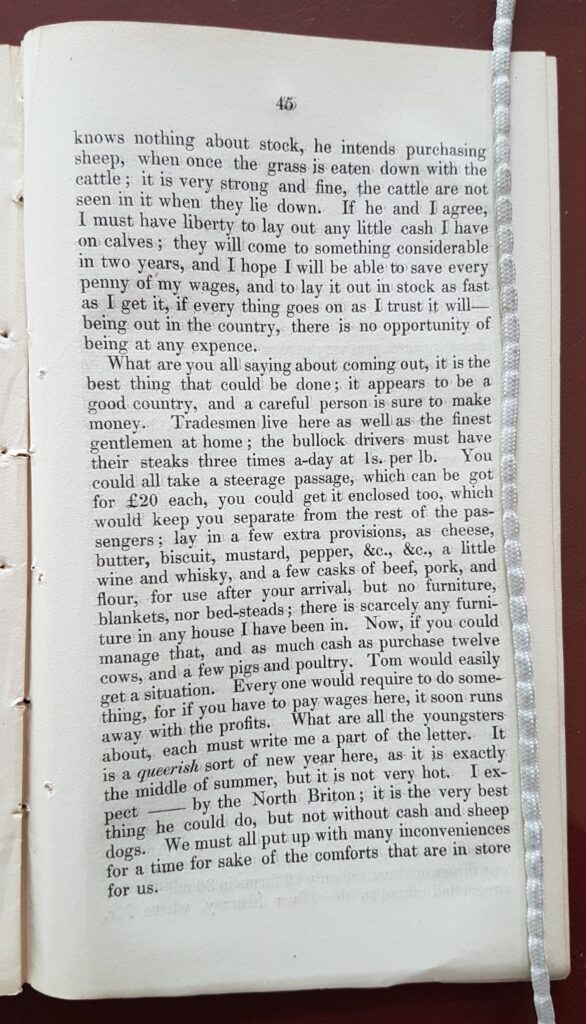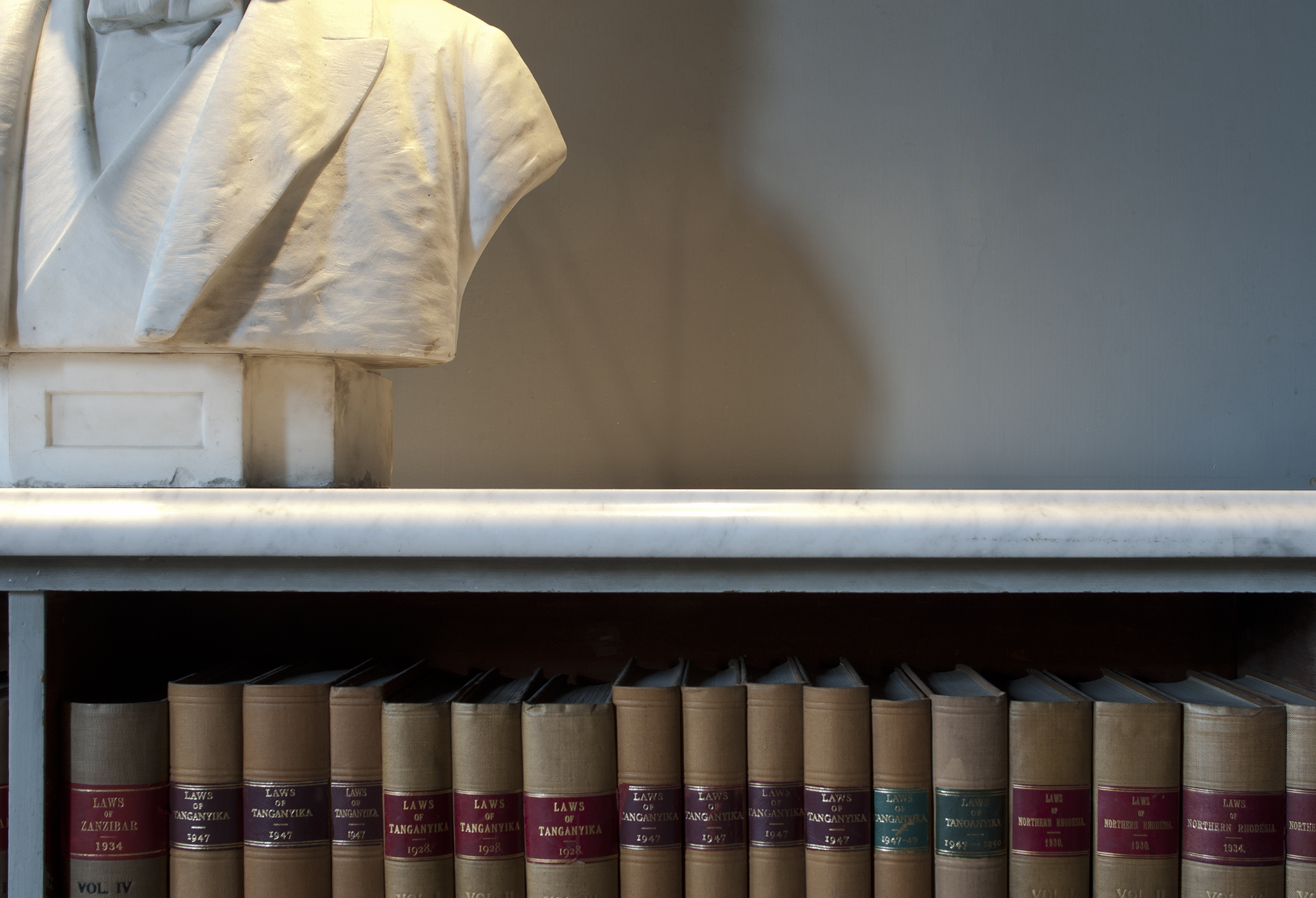The WS Society Annual exhibition 2021
The Great Affair is to Move: Travel and Topography at the Signet Library
Exhibition Home
In this part of the exhibition we consider the impact of war and attitudes to Empire and Colonialism as they are reflected in the Signet Library’s collections.
A Librarian At War
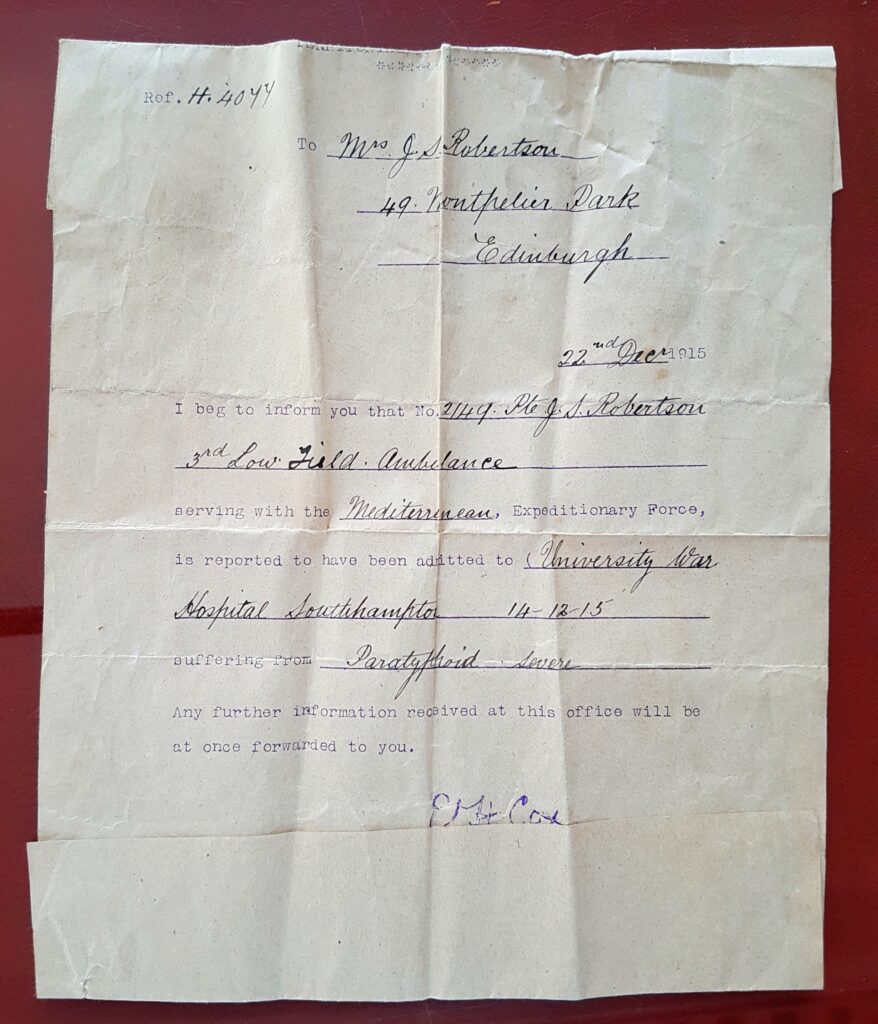
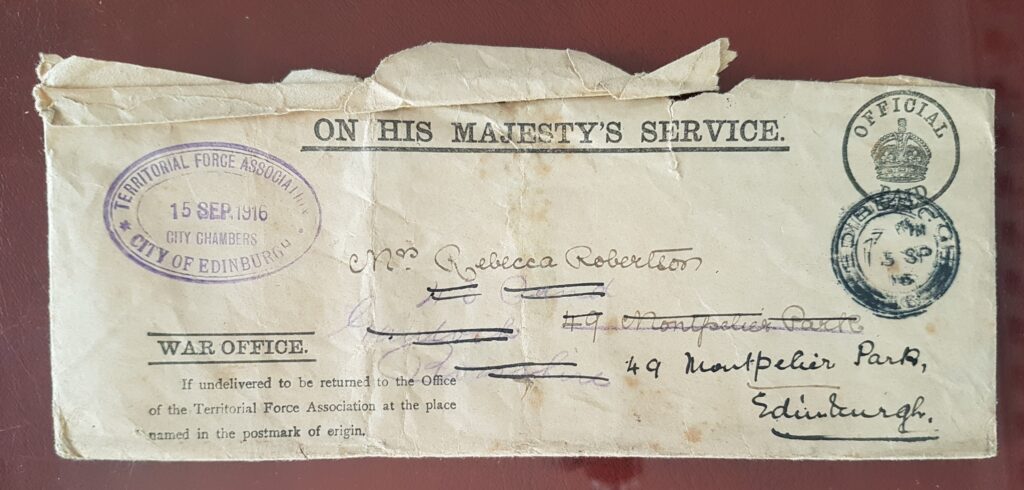
John Robertson (d. 1952) joined the Signet Library as an assistant Librarian just after the end of the Great War. Like so many Scots he’d seen service at Gallipoli: his war ended not there but in a military hospital having contracted typhoid fever. This telegramme went to his home in 1916 to inform his family.
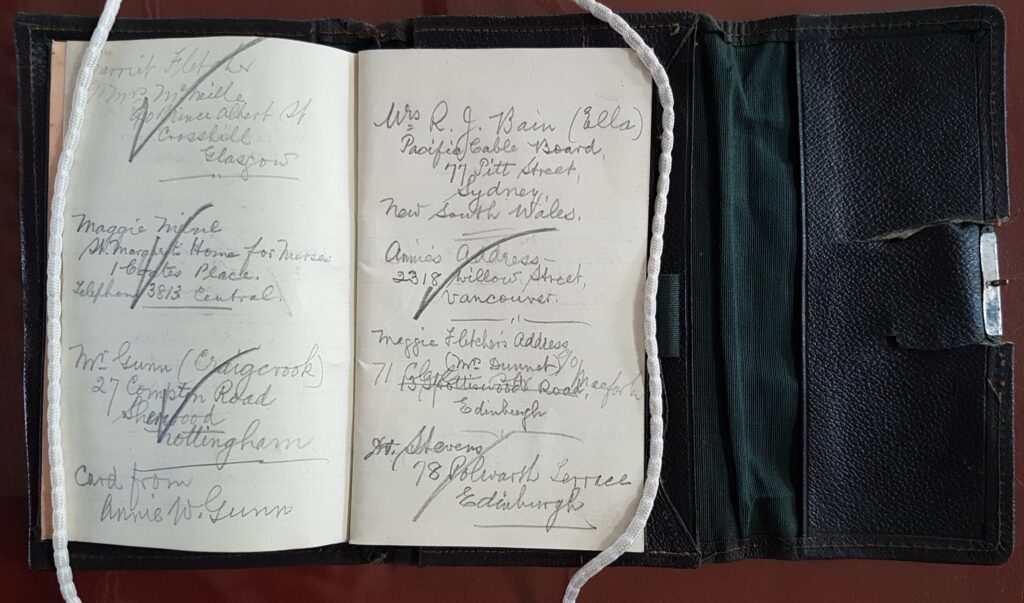
Robertson’s war took place during the last great period of Scottish emigration, and his address book is replete with entries that begin life in Scotland but continue in Canada, Australia and the United States.
Atlases of Empire
The nineteenth century period of British colonial expansion coincided with the golden age of Scottish cartography, with firms like Bartholomew and W.A.K. Johnston producing some of the greatest mapmaking in European history.
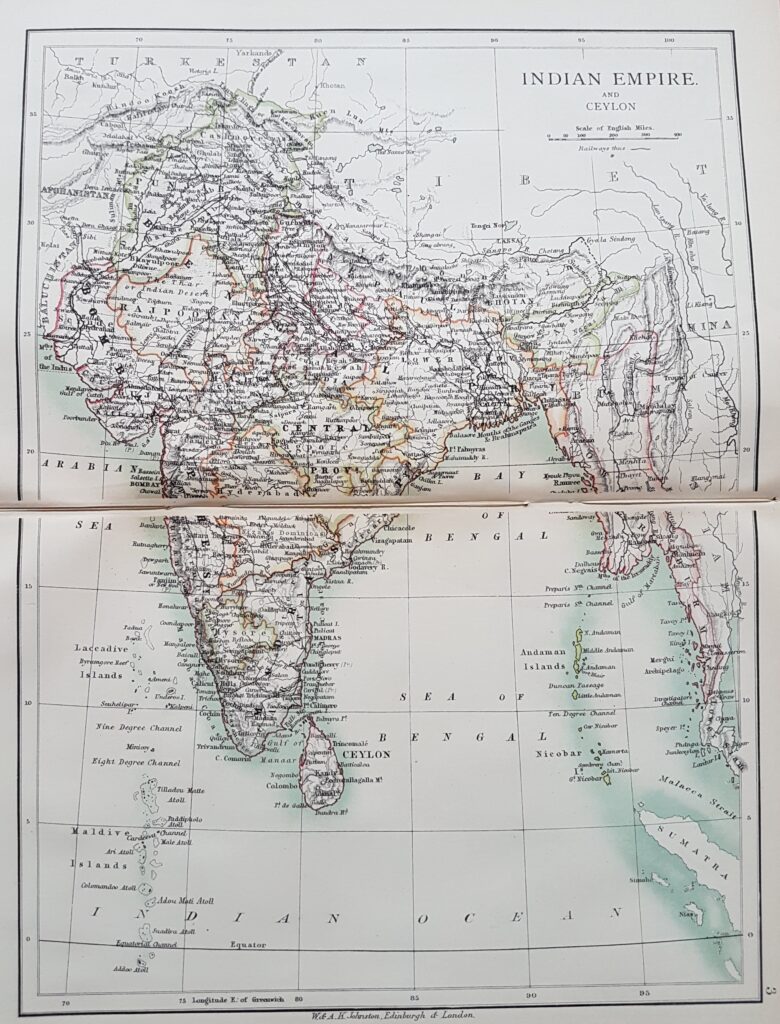
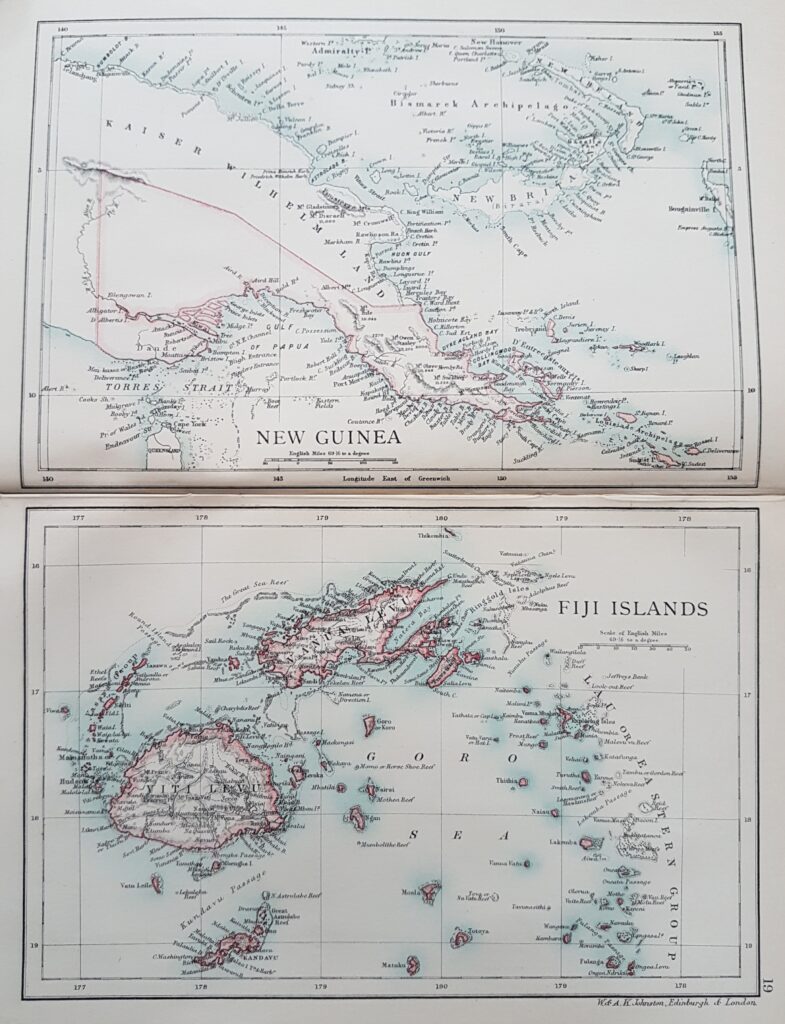
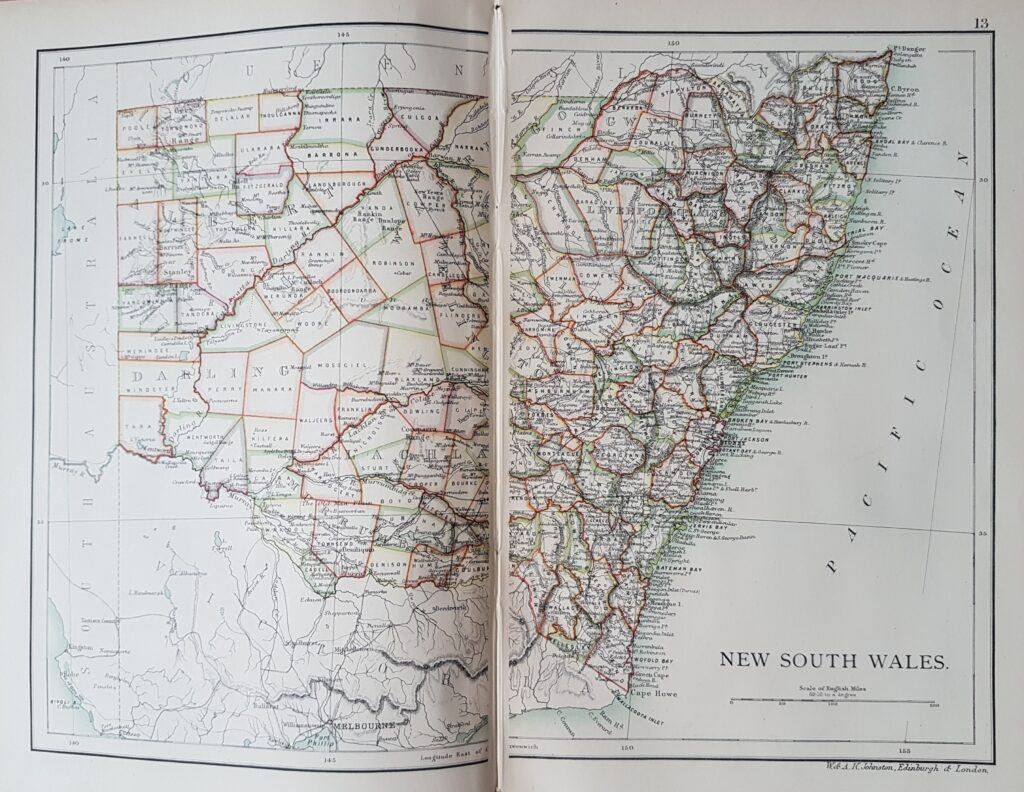
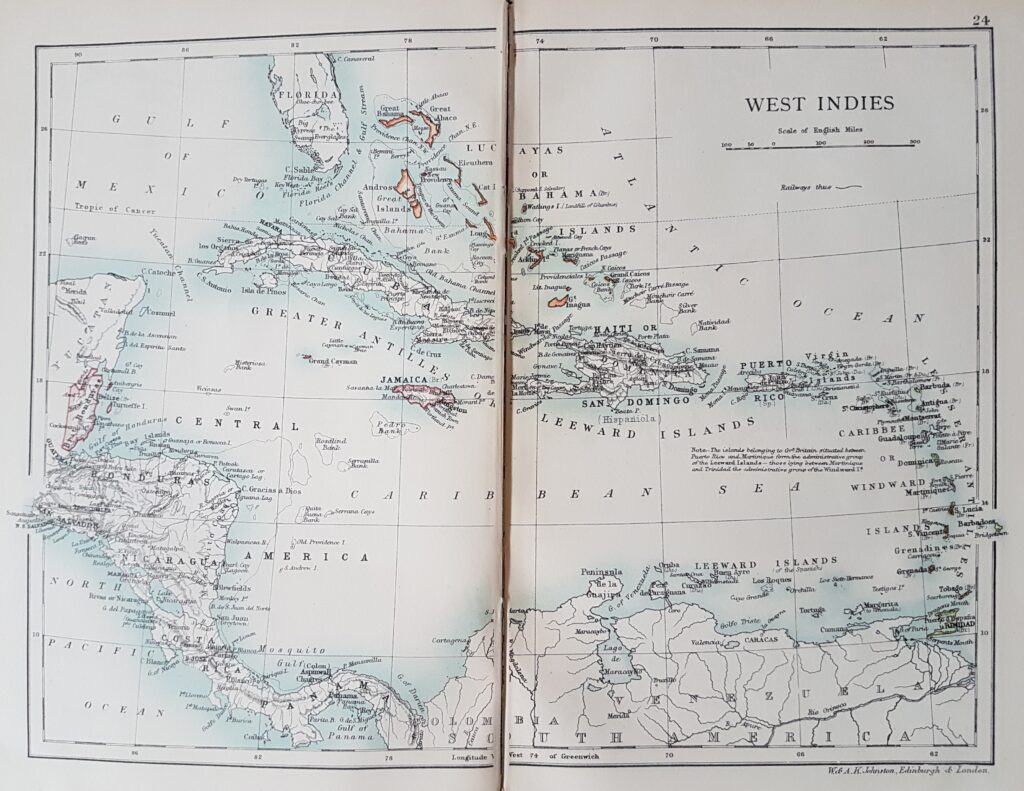
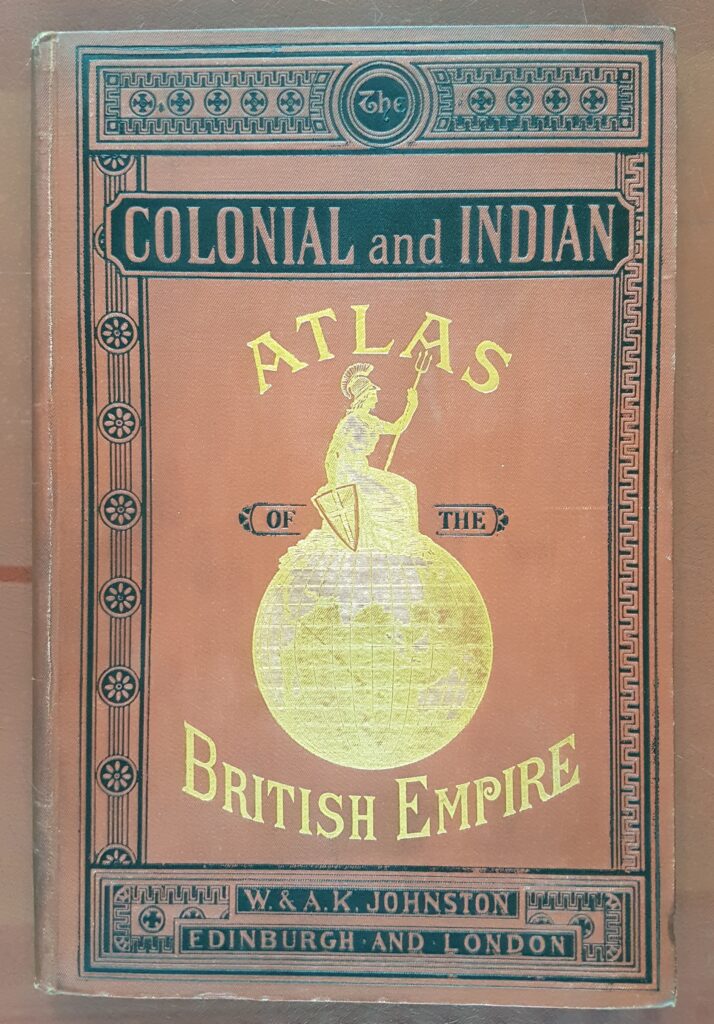
The Colonial and Indian Atlas of the British Empire. Edinburgh and London : W. & A.K. Johnston, 1887
It is interesting that this Johnston atlas appears to distinguish between the British Empire in India on the one hand (30 years after the events of the Indian Mutiny) and the “Colonial” Empire on the other, something that chronology alone doesn’t adequately explain.
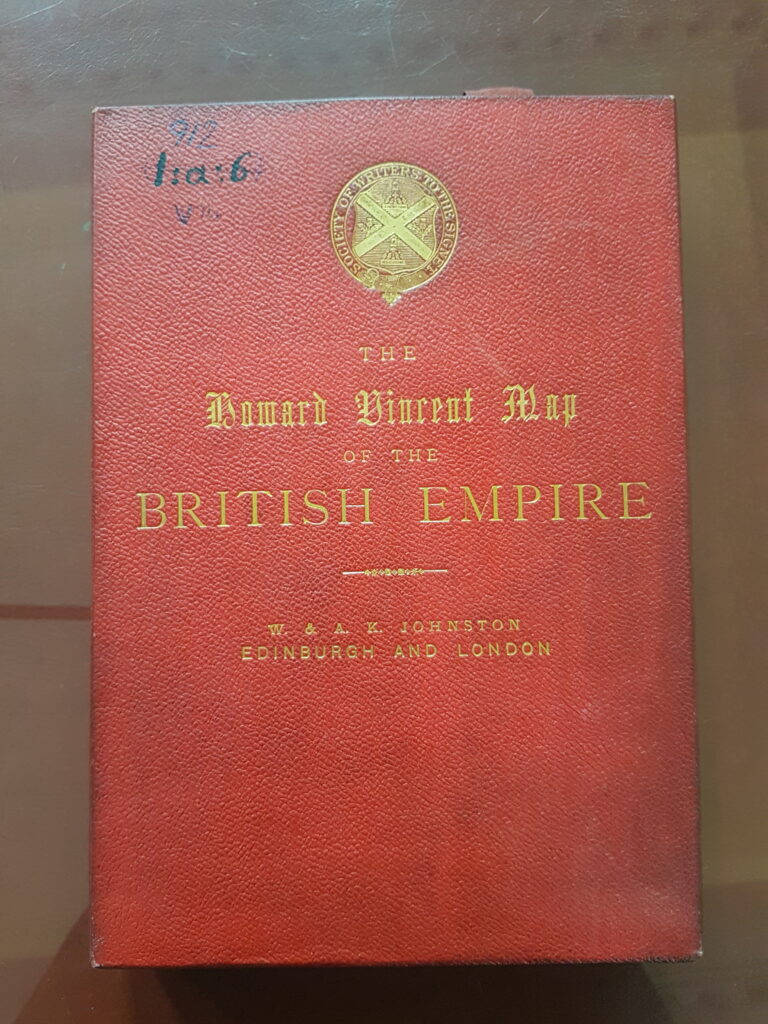

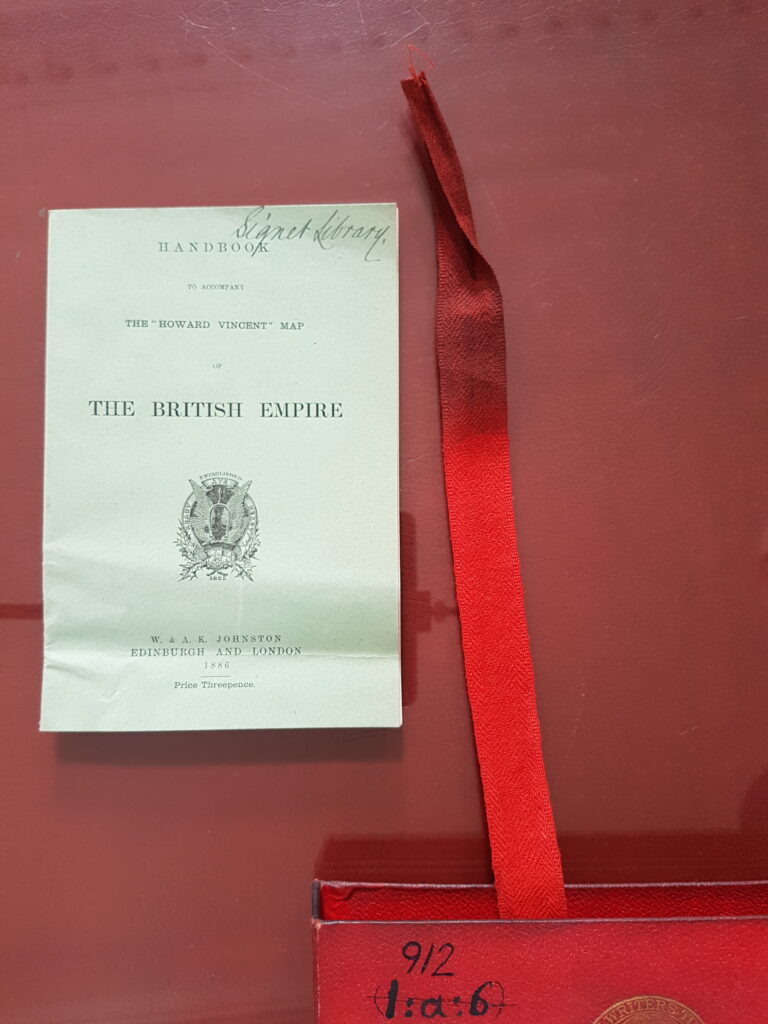

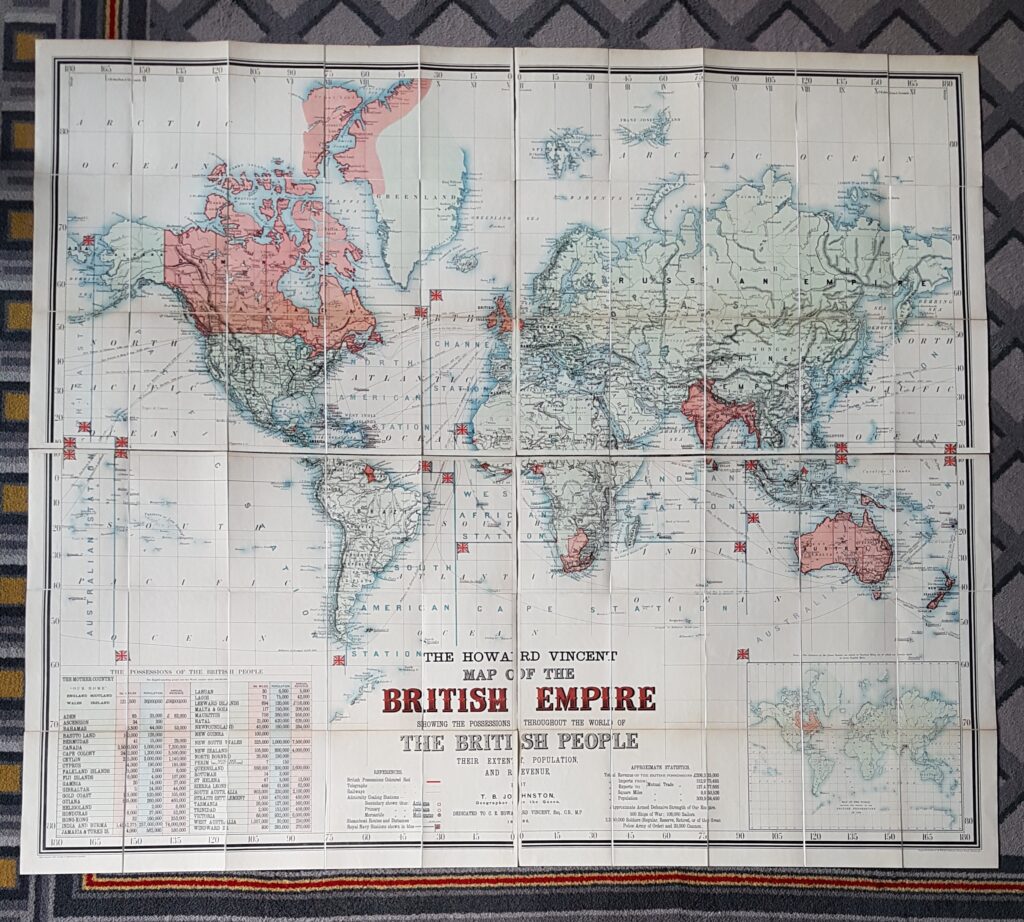
The Howard Vincent Map of the British Empire (The Imperial Foundation, 1886)
This contemporary of the Johnston Atlas of the British Empire is also a work of Scottish mapmakers, being attributed to Thomas Brumby Johnson of W. & A.K. Johnston. It’s by some margin the Signet Library’s largest sheet map, and appears to have had none but a celebratory function. It is believed that between arrival at the Signet Library in the late 1880s and 2021 the map was never fully opened.
Attitudes to Colonialism
Empire and colonialism attracted a wide range of attitudes within Britain, from enthusiasm to indifference. Here we encounter something altogether different, from a man for whom “altogether different” was an appropriate description: scholar, philosopher and reformer Jeremy Bentham. In 1792 Bentham had had French citizenship conferred upon him by the Revolutionary National Assembly, and a year later he availed himself of the privilege to write the pamphlet from which these pages are selected:
Emancipate your Colonies!
Addressed to the National Convention of France, A[nno] 1793, shewing the Uselessness and Mischievousness of Distant Dependencies to an European State. Now first published for sale. London: Effingham, Wilson, 1838
Bentham’s position was not so much that colonialism or empire were evils in themselves so much that they brought no benefit to their ruling countries. This was a longlasting pamphlet – the sheets were first printed up in 1793 but were not issued until 1829 when they were accompanied by a postscript. The Signet Library holds the 1838 edition which addresses the issue of Canada and which is signed by the anonymous “Philo-Bentham”.
The Experience of Colonialism in New Zealand
Emigration from Britain to colonized territories was encouraged by pamphlet publications of which these are two contrasting publications. One, signed by a “John Walton”, addresses the ordinary Scot who may have been thinking about leaving Scotland for New Zealand, positing that the state of Scotland and other European countries – and their overpopulation in particular – ruled out any possibility of the ordinary citizen successfully making their way at home:
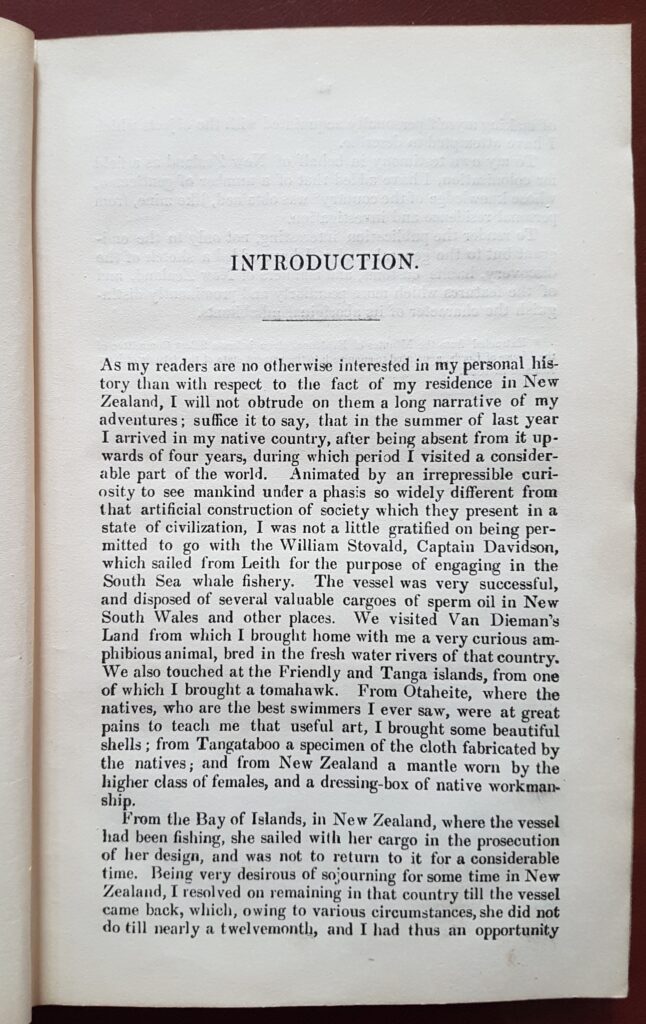
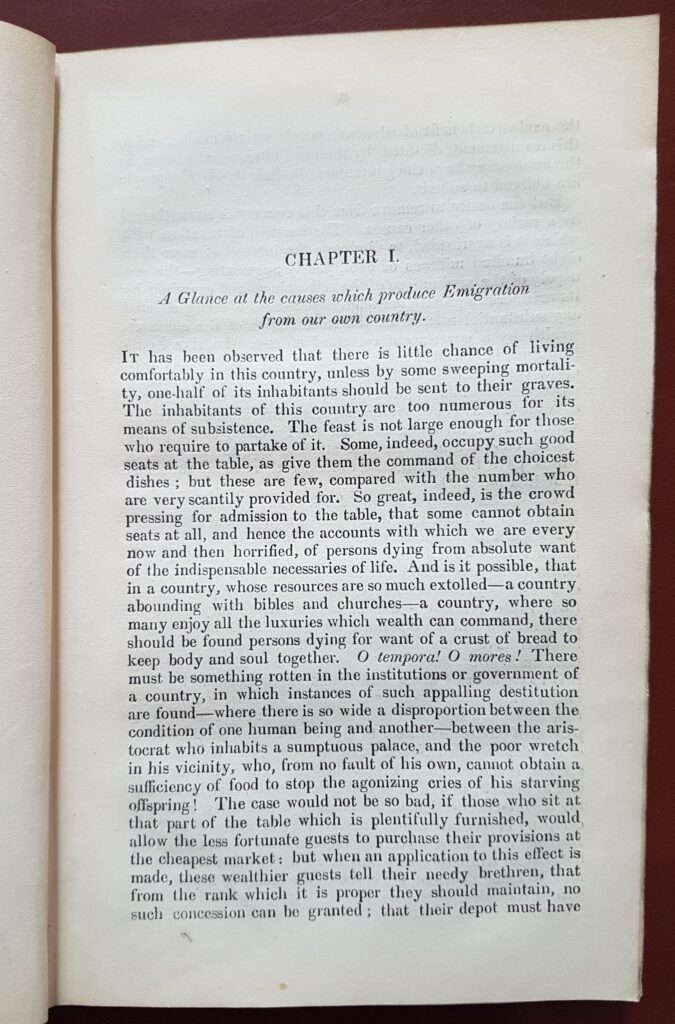
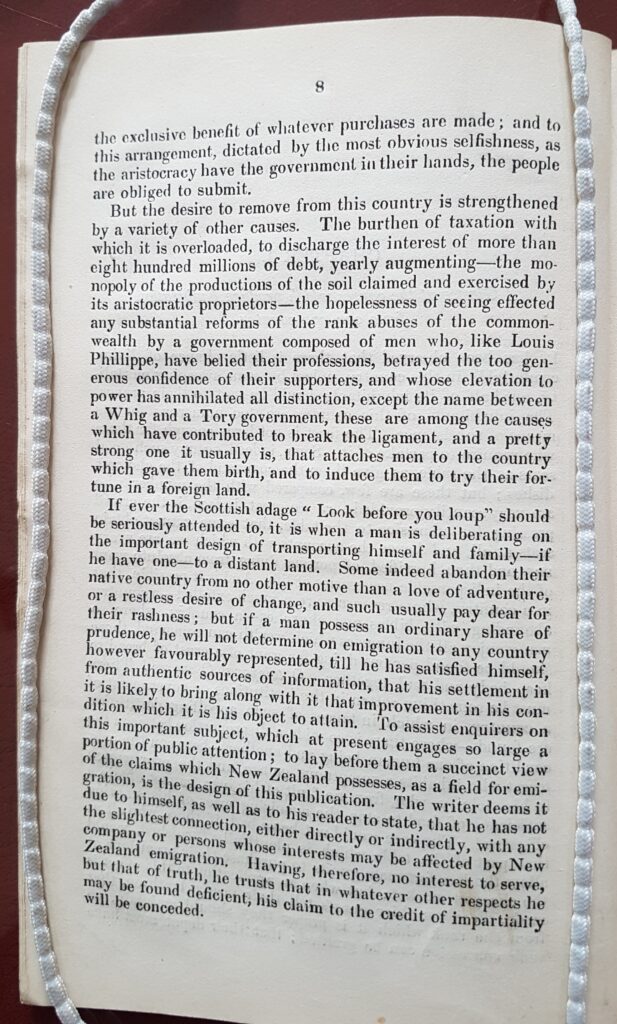
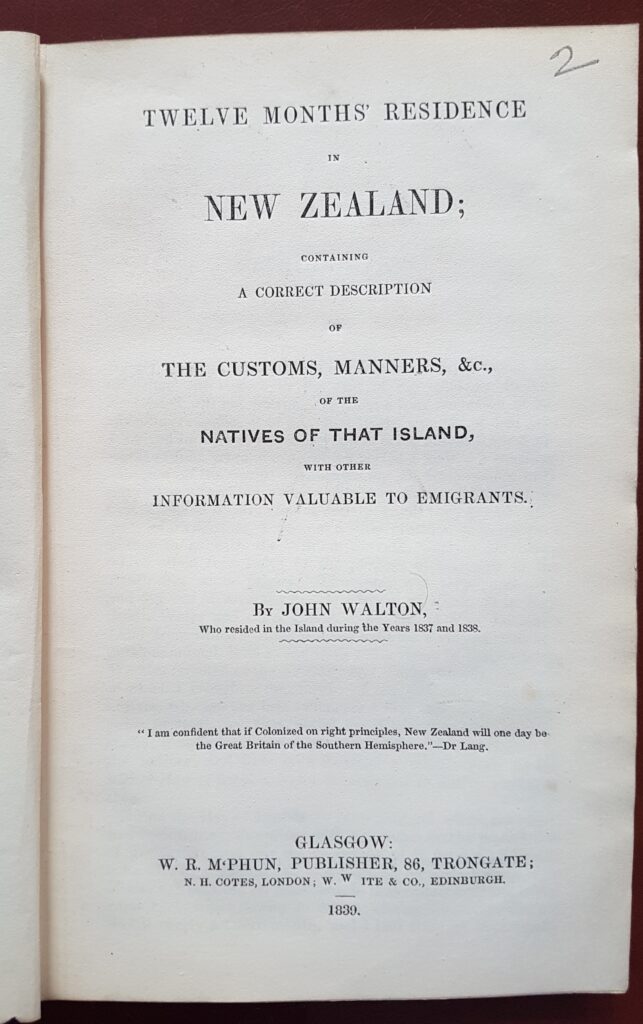
By contrast, Information Relative to New Zealand of 1839 takes a more scientific approach, attempting an extensive description of the economy and prospects of the territory which British emigrants – with Scots well to the fore – were only now arriving into and during a time in which wars between different Maori communities were still very much ongoing.
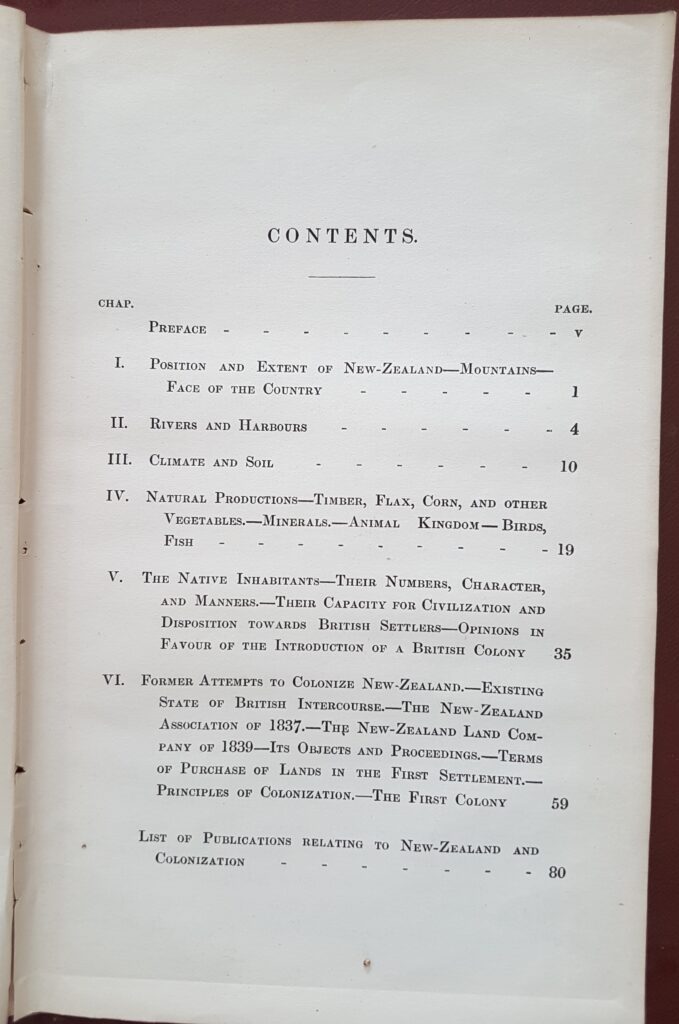
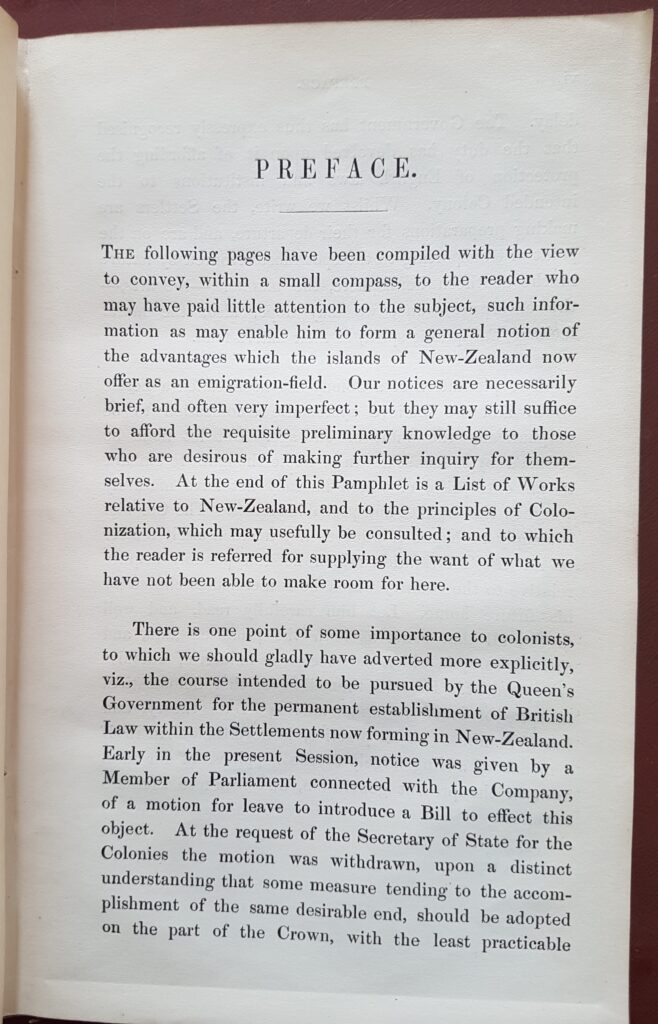
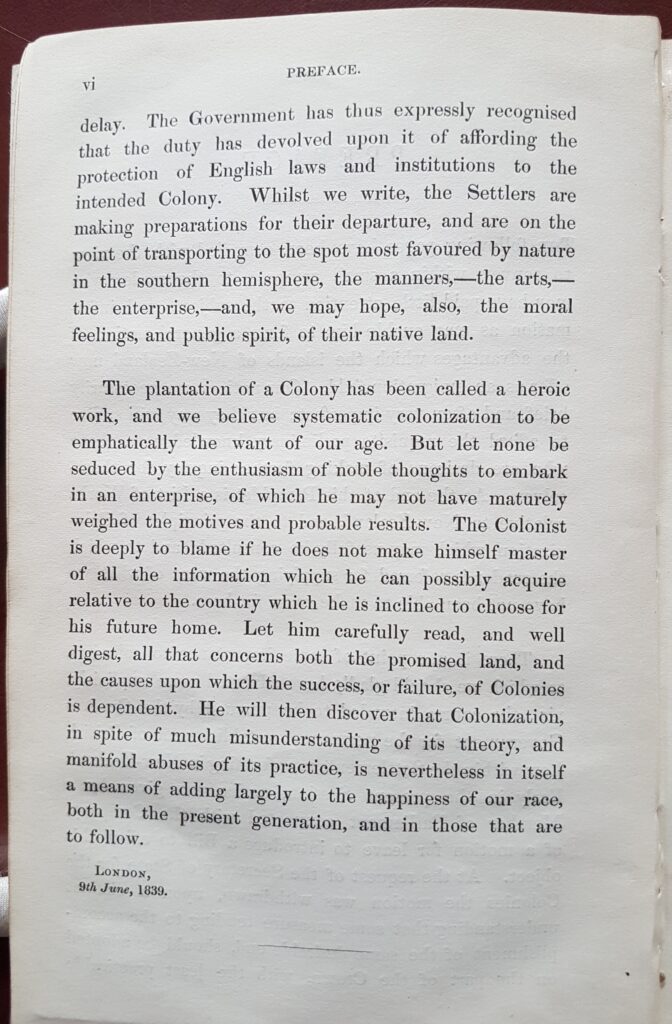
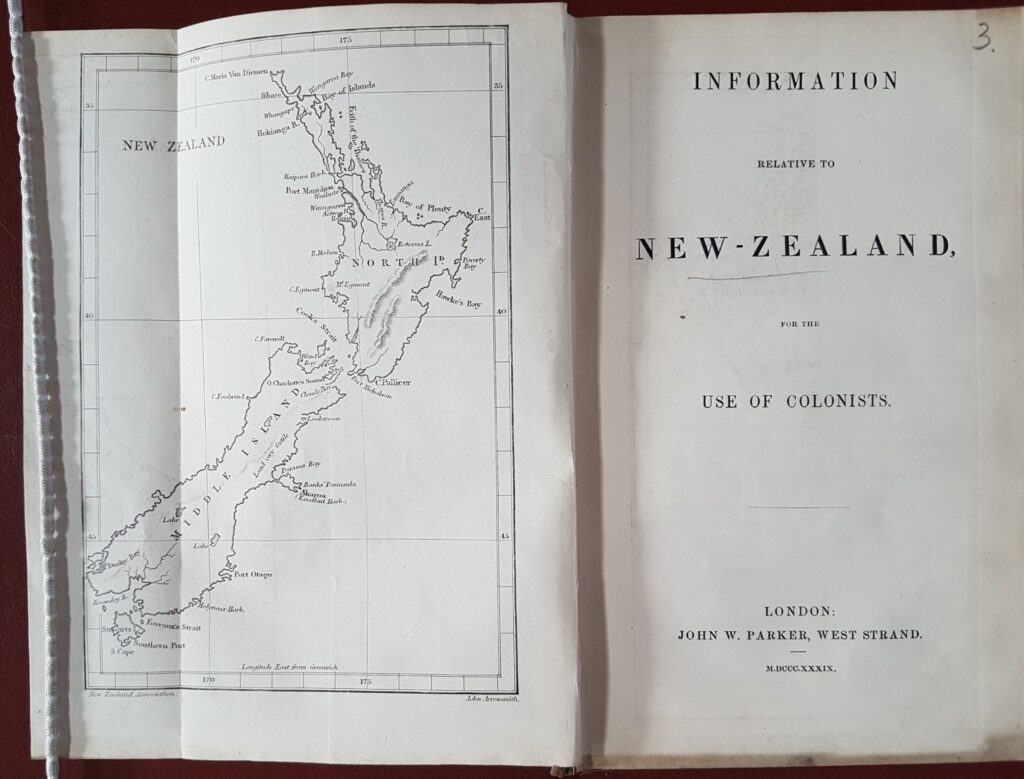
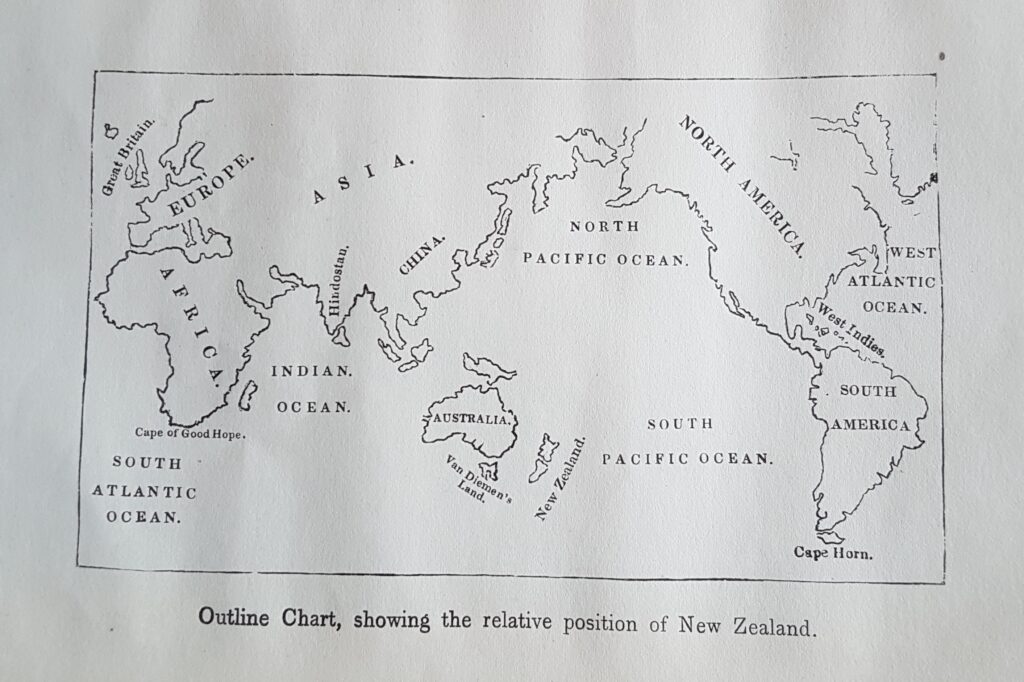
A Letter from Australia 1839
J.G. Johnston’s The Truth: Consisting of Letters Just Received from Emigrants to the Australian Colonies (Edinburgh 1839) contains a fascinating letter written to his mother by a Scot – perhaps an Orcadian – who has emigrated to South Australia. South Australia was a brand new designation at that time, and the first Australian territory whose law insisted on the rights of native Australians from the beginning (law that was ignored by both government and settlers in practice). Johnston’s account is plucky and positive, but hints at hardship experienced: We must all put up with many inconveniences for a time for sake of the comforts that are in store for us..
